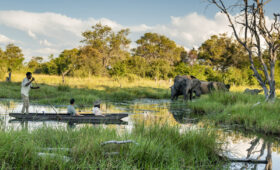Do You Need Malaria Pills for Tanzania Safari?
Planning a safari in Tanzania is a dream come true for many travelers but alongside the excitement comes important questions about health and safety. One of the most frequently asked questions we receive at Mandari Travel is: Do I need to take malaria pills for my Tanzania safari?
The short answer is: yes, malaria prevention is highly recommended for most visitors to Tanzania. In this blog post, we’ll explain what you need to know about malaria risk in Tanzania, how to protect yourself, and why preparing ahead ensures a more relaxed and enjoyable safari experience.
Is Malaria Present in Tanzania?
Yes. Tanzania is a malaria endemic country, meaning the disease is present year-round, particularly in lowland and rural areas including most national parks and game reserves. Malaria is spread by bites from infected Anopheles mosquitoes, which are most active between dusk and dawn.
While the risk varies depending on altitude, time of year, and location, most safari destinations including the Serengeti, Ngorongoro, Tarangire, Mikumi, Nyerere, and Ruaha are within malaria-risk zones.
Should You Take Malaria Pills?
Yes. The World Health Organization (WHO) and most travel clinics recommend that travelers to Tanzania take antimalarial medication. These pills help reduce your risk of infection and can significantly lessen symptoms if malaria is contracted.
There are several types of malaria pills, including:
- Malarone (Atovaquone-Proguanil): Taken daily, well-tolerated, and commonly prescribed for short-term travelers.
- Doxycycline: Also taken daily, doubles as an antibiotic, but may cause sun sensitivity.
- Lariam (Mefloquine): Taken weekly, but may cause side effects in some individuals.
Important: Always consult your travel doctor or healthcare provider several weeks before your departure. They will advise the best medication for you based on your health history and length of stay.
Additional Malaria Prevention Tips
While medication is important, it’s also essential to practice mosquito bite prevention, especially at night:
- Wear long sleeves and trousers during evenings and early mornings.
- Use insect repellent containing DEET or picaridin.
- Sleep under a mosquito net, especially in more basic or open-air accommodations.
- Choose lodges and safari camps with mosquito protection features such as window screens and fans.
At Mandari Travel, we work with safari lodges and camps that take mosquito protection seriously, so you can rest easy after your game drives.
Stay Healthy and Travel Confidently with Mandari Travel
Health and safety are top priorities at Mandari Travel. Our team offers guidance on malaria prevention, vaccinations, travel insurance, and more so you can enjoy your safari stress-free. We’ll also include practical health tips in your travel documents.
Email: info@mandaritravel
Call/WhatsApp: +255 750 900 811
Fill out the form below to request a quote or ask any travel health questions




